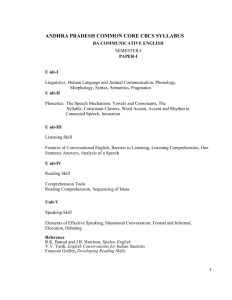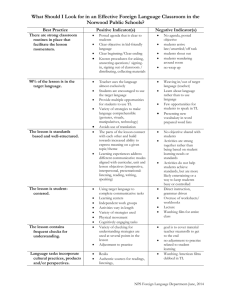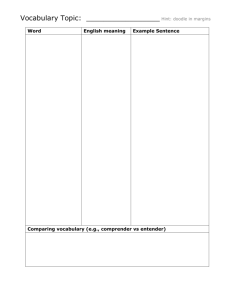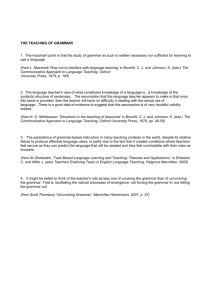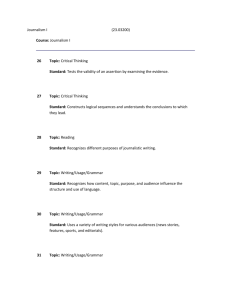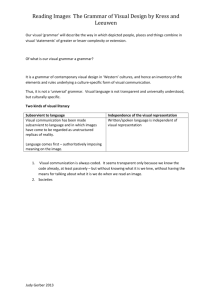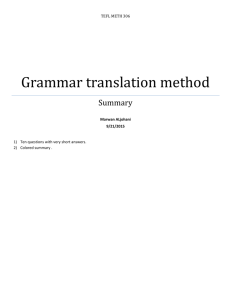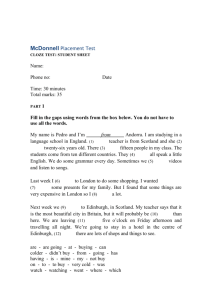Principles of Teaching Grammar
advertisement
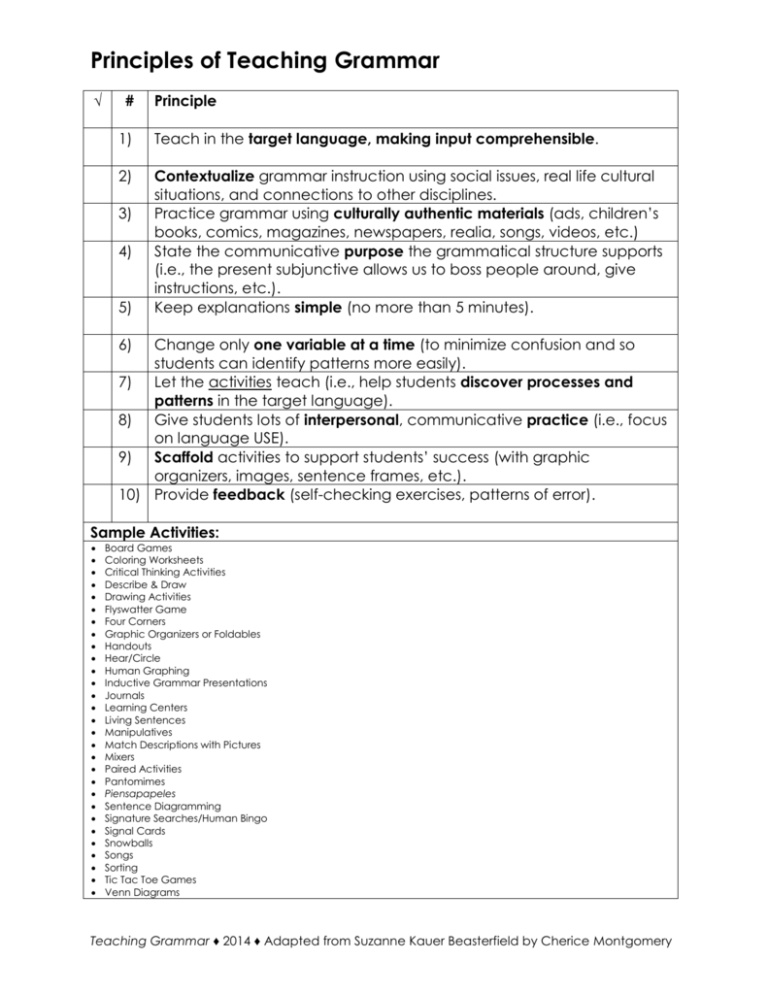
Principles of Teaching Grammar √ # Principle 1) Teach in the target language, making input comprehensible. 2) Contextualize grammar instruction using social issues, real life cultural situations, and connections to other disciplines. Practice grammar using culturally authentic materials (ads, children’s books, comics, magazines, newspapers, realia, songs, videos, etc.) State the communicative purpose the grammatical structure supports (i.e., the present subjunctive allows us to boss people around, give instructions, etc.). Keep explanations simple (no more than 5 minutes). 3) 4) 5) 6) Change only one variable at a time (to minimize confusion and so students can identify patterns more easily). 7) Let the activities teach (i.e., help students discover processes and patterns in the target language). 8) Give students lots of interpersonal, communicative practice (i.e., focus on language USE). 9) Scaffold activities to support students’ success (with graphic organizers, images, sentence frames, etc.). 10) Provide feedback (self-checking exercises, patterns of error). Sample Activities: Board Games Coloring Worksheets Critical Thinking Activities Describe & Draw Drawing Activities Flyswatter Game Four Corners Graphic Organizers or Foldables Handouts Hear/Circle Human Graphing Inductive Grammar Presentations Journals Learning Centers Living Sentences Manipulatives Match Descriptions with Pictures Mixers Paired Activities Pantomimes Piensapapeles Sentence Diagramming Signature Searches/Human Bingo Signal Cards Snowballs Songs Sorting Tic Tac Toe Games Venn Diagrams Teaching Grammar ♦ 2014 ♦ Adapted from Suzanne Kauer Beasterfield by Cherice Montgomery Principles of Teaching Grammar Teaching Grammar ♦ 2014 ♦ Adapted from Suzanne Kauer Beasterfield by Cherice Montgomery

